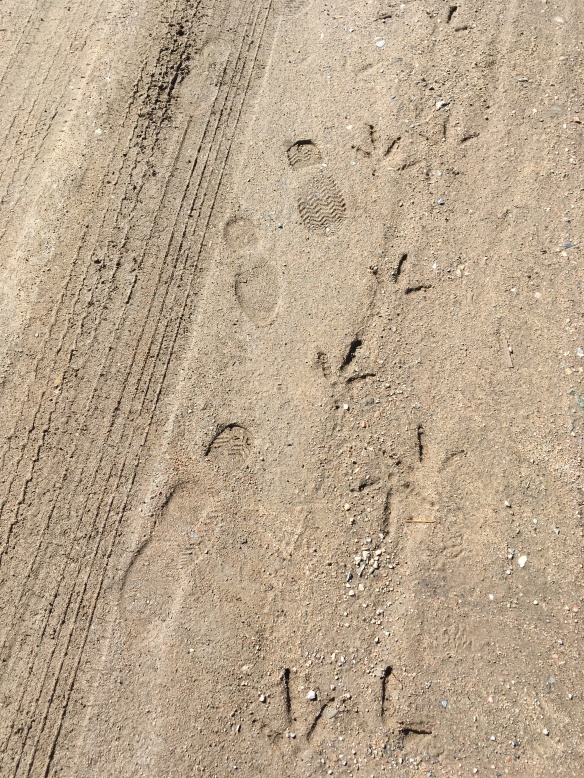
Sylvan Dale Guest Ranch, Loveland, Colorado, March 2019
How many truly meaningful and fulfilling conversations do you have in a day?
How many such relationships do you have?
Though I wrote my Pit Crew post almost a year ago, its ideas recur regularly. I have linked to it on multiple subsequent posts. I share it with patients and reference it in conversations often. My patients are leaders of large corporations and organizations. My colleagues and I lead teams in the hospital, the medical group, and the medical school. My friends lead their families and communities. When I think about our health and its consequences, it’s about taking care of those for whom we are responsible, ourselves included.
Are you generally the one who always takes care of others? How does this affect your style and effectiveness as a leader?
Who Takes Care of You?
I estimate that about 20% of the time when I ask this question, my patients say that nobody takes care of them; they do it themselves. They don’t mean that nobody cares about them. It’s that they don’t really depend on anyone for counsel and/or support. They hold everything together themselves. I always have mixed feelings when the conversation takes this turn. On one hand I feel admiration and respect, especially when they seem generally healthy—apparently unaffected by physical, mental, and emotional dysfunction. On the other, I get curious. How do they sustain this Lone Ranger method? And what does it cost them? I believe we all need tight, vulnerable, and safe connections through which we can get raw and real, and work through life’s ultimately messy sh*t. We need others, even if it’s only one or two, to help us truly hold it all together. My default assumption is that if we don’t have such connections, we are not living into our full potential.
And today I feel cynical. I think we are getting really, really bad at taking care of each other.
Driving to work this week I wondered to myself, why do we feel the dearth of mental health services so acutely these days? Is it that more of us are living on the psychological razor’s edge of mental health and illness? Are we not diagnosably mentally ill but simply, profoundly, stressed to our limits of sanity and function? Is that why none of my patients can get in to see a psychiatrist or therapist for weeks to months? Is that why physicians are increasingly leaving the profession and killing ourselves? Why do we feel so hopeless?
It’s easy to blame social media. And I do, partially. The cruelest irony lives here. My non-evidence based impression is that cyberbullying bears equally life-threatening consequences as face to face bullying. If you know of evidence to support or refute this premise, please share. Negative interactions on social media, which rage so easily like wildfires, are now understood to contribute significantly to the rise in loneliness across the country. Worse, cultivating truly positive relationships via social media is much harder and more complex, even deceptive. So on balance the risks and harms of social media may far outweigh the benefits. There simply is no substitute for personal, physical contact, for sharing the same space, breathing the same air, experiencing another’s full presence.
Worse yet, too often we can’t even get that right! Ozan Varol wrote about this in his last post, “3 Ways to Be Insufferable In Coversation.” They are: 1. Always turn the conversation back to yourself; 2. Pretend to listen; and 3. Ask no questions. How many people have you already met today who do this on the regular? If you’re honest, how many times today have you committed these relational sins? It’s okay, we all do it sometimes. As GI Joe says, knowing is half the battle. The other half is doing something about it!

Smart Museum of Art, Chicago, July 2019
So what do we do?
First, Attend. Pay attention. How much time do I spend on social media? What do I get out of it? When does Fear Of Missing Out (FOMO) drive my scrolling? Am I really connecting? Or am I stalking, comparing, judging, flaming, agitating the echo chamber, and otherwise wasting time and energy? How can I set alerts and redirect my routine?
Second, Intend. What is the best use of my time? If I want to see how my friends are doing, rather than check my Facebook feed, why not call them up? Send a text, photo, or—gasp—a handwritten note just to say hi, I’m thinking of you? It may cost you time, energy, and $0.55 in postage. But aren’t your real friends worth the investment? You can do it on social media too—if you slow down and think about it first. Consider the return—brightening someone’s day, feeling that personal connection. Dopamine drives FOMO, and is also associated with addictive behaviors. Bonding behaviors elevate oxytocin, the hormone that mediates empathy, safety, and connection. There is even evidence that higher levels of oxytocin correlate with increased longevity of romantic relationships, or even a person’s own life span (could not find a reliable, peer-reviewed source for this claim—I just believe it intuitively).
Third, Get Curious. This was the first skill I (re)learned in life coaching, ‘way back in 2005, and it serves me well every single day. If we let go of the competitive, scarcity-based thinking that surrounds us, what more could we learn? What novel and inspiring stories could we hear from anyone we meet, or even our closest friends? If we listen to understand rather than to reload and refute or one-up, what vexing problems could we solve, together? Just wondering about it makes me feel lighter and more optimistic, what about you?
Subscribe to Ozan’s newsletter, the Weekly Contrarian, to get his list of solutions to conversation insufferability this Thursday, 9am Central Time (I have no financial interests in Ozan’s site; I just really admire his work and the community of critical thinkers he has convened). And today, I challenge us all: Monitor our attitudes and facial expressions. Manage our self-absorption for a few minutes at a time. Look strangers in the eye and smile as if they’re already our friends. Ask a Facebook friend what they did this weekend that really made them feel alive and well. Let’s all get our caring on, shall we?

Friends, here is Ozan’s follow up post: https://ozanvarol.com/3-counterintuitive-ways-to-excel-in-conversation/
LikeLike
Pingback: November 10: Experimental Questions Make Me Better | Healing Through Connection
Pingback: Friendsourcing Motivation | Healing Through Connection